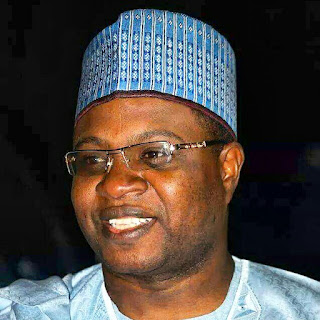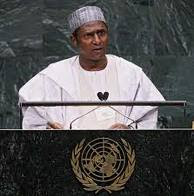Congratulations, Izala!
Last
Wednesday news emerged that the 20-year feud that had polarized members
of the Muslim organization Izalatil Bidi’ah Wa Ikamatis Sunnah,
popularly known as Izala, had been resolved. Twenty years is a long time
to be fighting over anything; this news must therefore come as big
relief to Muslim all over the country, but in particular to Muslims that
openly identify with the Izala group.
According to a Hausa language newspaper
publication, Aminiya, which appeared last Friday, the reconciliation
came as a culmination of several weeks of meetings and consultations
among the leadership of the two main factions of the group. The two
factions are made up of the Kaduna group, which until the reconciliation
was led by Sheikh Yusuf Sambo Rigachikun; and the Jos faction led by
Sheikh Muhammad Sani Yahaya Jingir.
Consequent upon the reconciliation,
Sheikh Muhammad Sani Yahaya Jingir emerged as the national leader of the
Izala council of Ulama (Muslim scholars and leaders), while his
erstwhile adversary, Sheikh Yusuf Sambo Rigachikun emerged as his
deputy.
Since this is not a religious discourse,
it would be a distraction to delve into the theological basis of the
Izala group. But certain factors make the Izala group or sect impossible
to ignore; the first factor has to do with the size of the group in
terms of the number of adherents it has; the Izala group is easily the
largest, or at least one of the largest, single Muslim group in Nigeria.
The second factor that makes the Izala group a critical factor in
national affairs is that like other religious sects in the country,
leaders of Izala command the loyalty their members so powerfully it is
difficult to put a limit to how far members would go in obeying the
instructions of those leaders.
A group, any group, with such
overwhelming spread and influence therefore cannot be ignored. A violent
conflict among the Izala group, for instance, would be a threat to
national security. In the same way a united, peaceful and
development-oriented Izala group would be a useful and powerful partner
for government in building a successful nation.
Viewed from this perspective, the
reconciliation within the Izala group couldn’t have come at a more
auspicious time, when religious and sectarian violence are ravaging the
northern part of the country where Izala and indeed Islam has its larges
adherents.
On its part the new leadership of the
unified Izala group must develop, as a matter of urgency, a framework
for constructive engagement with other religious sects and groups both
Muslim and none Muslim for the purpose of finding a lasting solution to
the serious security and development challenges that are threatening to
destroy the very foundation upon which the country is built; namely
understanding, tolerance, accommodation and mutual respect for the
rights and privileges of others.
One very important issue that the new
Izala leadership must also not lose sight of is what caused the 20-year
old rift in the first place. Although some of the founding fathers of
the group are dead (may their souls rest in perfect peace), it is mainly
their disciples that have now stepped into their shoes; it is
reasonable therefore to assume that they are adequately familiar with
the issues that factionalized the group in the first place.
From all available evidence, the major
reasons that precipitated the rift within Izala were hubris, ego and
self-interest. Having captured the attention and loyalty of their
followers, the leadership of the group thereafter inevitably became
intoxicated with their newly acquired power and influence. Naturally
leadership crisis ensured, which heightened with the passing away of
unifying figures of the group such as the late Sheikh Abubakar Mahmud
Gumi who died in 1992 and later Sheikh Ismail Idris after him.
According to insiders, successive
military and civilian regimes from the 1980s to date have exploited the
differences within the factions to achieve personal political
objectives. indeed according to a source close to the recent successful
reconciliation meetings, some politicians, traditional rulers and top
government officials have actually tried to penetrate the meetings, but
were repulsed by the conveners. If this is true, then the only advice
that may be added here is for the leadership to strive hard to maintain
this independence.
To be able to remain independent, the
leadership must have to learn to live within the teachings of the
Islamic religion; the leaders must strive to contain their appetite for
wordly pleasures. Through the years, most of them have developed a
lifestyle that is inconsistent with the teachings of the religion they
practice. It is through this weaknesses that unscrupulous political
leaders find ways of breaking their ranks. This they must guard against.
All said though, it is important to
commend the efforts and sacrifices of those that pushed through this
groundbreaking reconciliation project. One of the first priorities of
the new leadership should be how to direct the energy and passion of
their members, who are in tens of millions, to the positive teachings of
Islam. In a word Islam is the Arabic word for peace; that, if we can
have it, will make all the laudable objectives the new leadership aspire
to achieve not only possible, but much easier.


Comments
Post a Comment